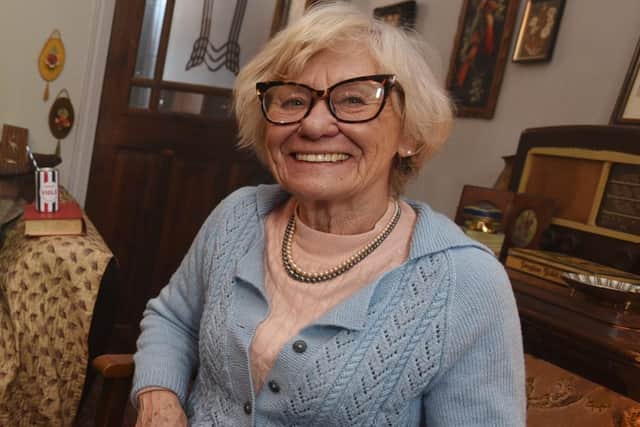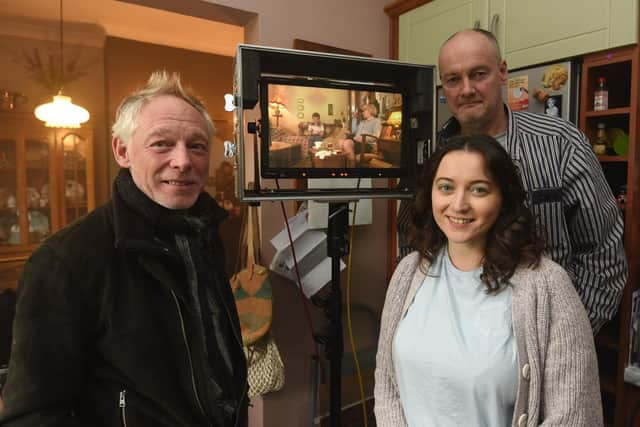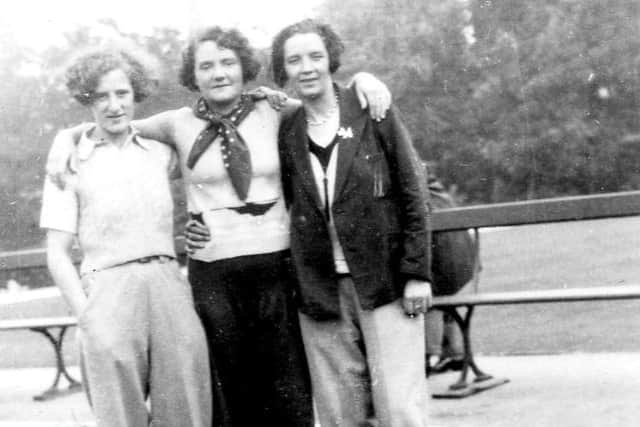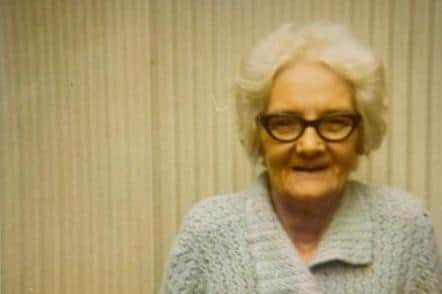Movie about women's footballing legend is shot in Wigan
and live on Freeview channel 276
Actors and a crew descended on a Swinley cul-de-sac to film scenes for a short subject called Granny which will focus on the life of Lizzy Ashcroft who rose to prominence after World War One and then continued to play in internationals after the FA imposed a notorious ban on the women’s game in 1921.
It is hoped that the film will form part of the national events in December which will mark that anniversary, including the latest Women’s FA Cup final at Wembley.
Advertisement
Hide AdAdvertisement
Hide Ad

Wigan cameraman Ian Livesey persuaded his mum Sheila to use her home interior for scenes of the older Lizzy - played by the acclaimed actress Penny Ryder (Coronation Street, Skyfall) - in the 1970s as she reminisces about the great days of playing in front of crowds of tens of thousands.
The project came about because Lizzy’s grandson, Preston-born but Essex-based teacher Steve Bolton, is a football researcher and lecturer in his spare time, and one of his tweets about Lizzy was picked up on by actor and writer Michelle Crane who got in touch and said it would make a great subject for a movie.
Michelle plays a seven-year-old Steve’s mum who takes him to stay with Lizzy who gets out her suitcase full of footballing memories. In another scene some boys are kicking a can in the street and Granny runs rings round them.
Cut to years later after Lizzy has died and an older Steve, played by Robin Simpson, finds the old suitcases and finally fully appreciates how great his granny was.
Advertisement
Hide AdAdvertisement
Hide Ad

Steve said: “Women’s football was huge just after World War One. Women had been involved in heavy industry and there had been a massive reduction in male footballers.
“By 1921 there were 150 women’s teams, raising a lot of money for charity. Then the FA imposed this ban on the women’s game, claiming there was dodgy money involved and also claiming it wasn’t safe for the fairer sex.
“It was a ban which would last in England until 1970 and many women’s teams folded almost immediately.
“But my granny, who was very talented, played on. In 1921 she had made her debut for St Helens against Stoke Ladies in front of 30,000 fans at St Andrew’s in Birmingham.
Advertisement
Hide AdAdvertisement
Hide Ad

“The English National Football Museum in Manchester has some of her memorabilia, including her medal from that match. It is reckoned she played before more than 200,000 spectators that season.
“After the ban an English Ladies’ Football Association did try to keep things alive but it did not survive.
“However the Dick Kerr Ladies’ team in Preston did carry on, Granny joined them in 1923 and stayed there for 13 years. They would play at football venues that were not affiliated to the FA, along with rugby and cricket grounds.
“They also played at agricultural shows and had a crowd of 10,000 when they appeared at Moor Park in Preston.
Advertisement
Hide AdAdvertisement
Hide Ad

“They would compete in international matches. When they played the French Ladies’ team they were entertained on the terrace at the Houses of Parliament.
“I had gone through quite a large part of my life not appreciating Lizzy’s contribution until I, like my character in the film, dusted down some suitcases belonging to her while I was primary carer for my seriously ill father.
“Having this made into a film is a very proud moment.”
Meanwhile it has been nice for Ian to be back on home turf. As a young camera assistant to famous director of photography David Odds he worked with the likes of Dame Maggie Smith, David Jason and Daniel Craig.
But he has forged his career more in the documentary field since, being involved in several award-winning films.
Advertisement
Hide AdAdvertisement
Hide AdHe said: “If you asked me why I became an image maker, it’s because the time I spent as a glass collector in a labour club in Wigan at the age of 14, listening to all of the pit men tell their stories. I loved listening to them. I wanted to capture and share all of those moments using still or moving image.”


The 10-minute film is being directed by Francis Castelli who already has a short film about Bobby Charlton among his credits.
While the filming is taken care of, there are still efforts to raise cash to pay for the post-production on the film.
Anyone who could contribute is asked to visit https://www.gofundme.com and search for Granny Short film.
Thanks for reading. If you value what we do and are able to support us, a digital subscription is just £1 for your first month. Try us today by clicking here and viewing our offers.
